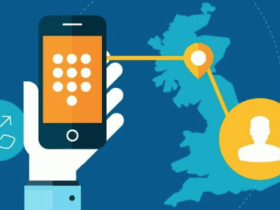In today’s interconnected world, where digital privacy and security are paramount concerns, Virtual Private Networks (VPNs) have emerged as essential tools for internet users. VPNs play a crucial role in safeguarding online privacy, protecting sensitive data, and enabling unrestricted access to online content. Let’s delve into the significance of VPNs in modern realities.
1. Privacy Protection:
Privacy has become a major concern in the digital age, with the constant threat of data breaches, surveillance, and invasive tracking practices. VPNs encrypt users’ internet traffic, masking their IP addresses and making it virtually impossible for third parties to monitor their online activities. By establishing a secure tunnel between the user’s device and the VPN server, hide vpn ensures that sensitive information remains private and inaccessible to unauthorized entities.
2. Security Enhancement:
In addition to privacy protection, VPNs enhance online security by providing an extra layer of defense against cyber threats. By encrypting data transmitted over public networks, https://hide.expert/en prevent hackers, identity thieves, and other malicious actors from intercepting sensitive information such as passwords, credit card details, and personal communications. This is especially crucial when using public Wi-Fi networks, which are notorious for their vulnerability to cyber attacks.
3. Access to Restricted Content:
VPNs enable users to bypass geo-restrictions and censorship imposed by governments, internet service providers (ISPs), and content providers. By connecting to VPN servers located in different countries, users can access region-locked websites, streaming services, and online platforms that may be unavailable in their own location. This not only provides users with greater freedom and flexibility but also fosters a more open and inclusive internet ecosystem.
4. Business Applications:
VPNs are widely used in the corporate world to facilitate secure remote access to company networks and resources. With the rise of remote work and distributed teams, VPNs enable employees to connect to their organization’s internal systems from anywhere in the world, without compromising security. Additionally, VPNs help businesses maintain confidentiality and protect sensitive data when transmitting information between branch offices or communicating with clients and partners.
5. Evolving Threat Landscape:
As cyber threats continue to evolve and become more sophisticated, the role of VPNs in modern realities becomes increasingly critical. With the proliferation of internet-connected devices and the growing reliance on cloud-based services, the attack surface for cybercriminals is expanding rapidly. VPNs provide a crucial line of defense against these threats by encrypting data and anonymizing online identities, thereby mitigating the risk of unauthorized access and data breaches.Open website to learn more about the capabilities of our VPN server.
In conclusion, VPNs have become indispensable tools in today’s digital landscape, serving as essential safeguards for privacy, security, and unrestricted access to online content. As individuals and organizations navigate the complexities of the digital age, VPNs offer a reliable means of protecting sensitive information, preserving online freedom, and adapting to evolving cybersecurity challenges.












Leave a reply